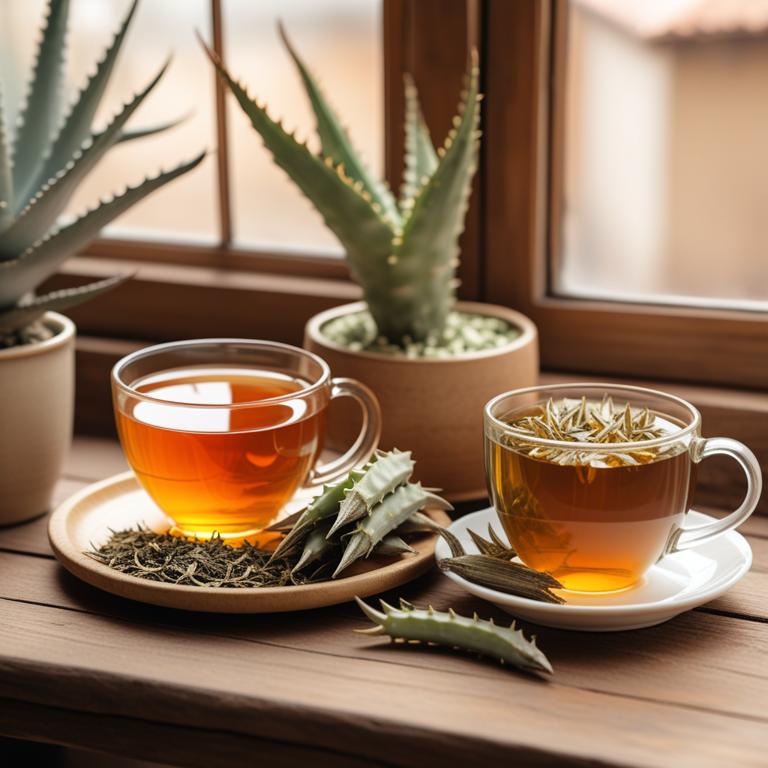7 Best Herbal Teas For Inflammatory Bowel Disease

Herbal teas for Inflammatory bowel disease are a natural and holistic approach to managing the symptoms of this chronic condition, which is characterized by inflammation and irritation of the digestive tract.
These teas are often used to reduce inflammation, soothe the digestive system, and promote overall gut health.
Examples of herbal teas that have been shown to be beneficial in treating Inflammatory bowel disease include peppermint tea, which relaxes the muscles in the digestive tract and reduces symptoms of irritable bowel syndrome (IBS); chamomile tea, which has anti-inflammatory properties and calms the digestive system; ginger tea, which has anti-inflammatory properties and helps to reduce nausea and vomiting; fennel tea, which helps to reduce bloating and gas; licorice root tea, which has anti-inflammatory properties and soothes the digestive system; and slippery elm tea, which forms a protective barrier on the lining of the digestive tract and reduces inflammation.
By incorporating these herbal teas into their daily routine, individuals with Inflammatory bowel disease may be able to reduce their symptoms and improve their overall quality of life.
According to "Expert review of gastroenterology & hepatology", teas for inflammatory bowel disease may be beneficial due to their natural compounds, which have anti-inflammatory and immunoregulatory effects, anti-oxidative stress, and the ability to modulate intracellular signaling transduction pathways.
Below there's a list of the 7 best herbal teas for inflammatory bowel disease.
Also you may be interested in...
TODAY'S FREE BOUNDLE
Herb Drying Checklist + Herbal Tea Shopping List + Medicinal Herbs Flashcards
Enter you best email address below to receive this bundle (3 product valued $19.95) for FREE + exclusive access to The Aphotecary Letter.
$19.95 -> $0.00
1. Ginkgo biloba teas

Ginkgo biloba teas have been studied for their potential benefits in treating inflammatory bowel disease (IBD), a condition characterized by chronic inflammation of the digestive tract.
The anti-inflammatory and antioxidant properties of Ginkgo biloba teas may help to reduce inflammation and protect the gut lining from damage, thus alleviating symptoms of IBD.
The bioactive constituents of Ginkgo biloba, including flavonoids and terpenoids, have been shown to inhibit the production of pro-inflammatory enzymes and cytokines, which contribute to the development of IBD.
By reducing inflammation and promoting gut health, Ginkgo biloba teas may offer benefits in managing IBD symptoms and improving quality of life for individuals with this condition.
Related Study
According to "Journal of research in medical sciences : the official journal of Isfahan University of Medical Sciences", Ginkgo biloba teas for inflammatory bowel disease have been reported to have favorable results through various mechanisms such as leukotriene B4 inhibition, antioxidant activity, immune system regulation of nuclear factor-kappa B, and antiplatelet activity, with no reported adverse events.
2. Silybum marianum teas

Silybum marianum teas, also known as milk thistle tea, have been traditionally used to treat inflammatory bowel disease (IBD) due to their anti-inflammatory and antioxidant properties.
The bioactive constituents of this herbal preparation, particularly silymarin, flavonoids, and phenolic acids, help to reduce inflammation and protect the gut from oxidative damage, thereby alleviating symptoms of IBD.
Silybum marianum teas have been shown to modulate the gut microbiota, reduce inflammation, and promote healing of the gut lining, making it a potential natural remedy for IBD.
The benefits of using Silybum marianum teas to treat IBD include reduced symptoms, improved quality of life, and a potential reduction in the need for conventional medications.
Related Study
According to "Frontiers in pharmacology", Silybum marianum teas, which contain the flavonoid compound silibinin, may be effective in relieving intestinal inflammation caused by dextran sulfate sodium through the modulation of the c-Jun N-terminal kinase (JNK) signaling pathway.